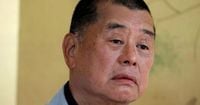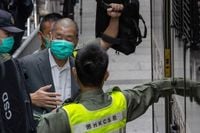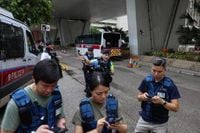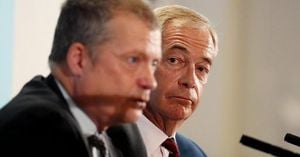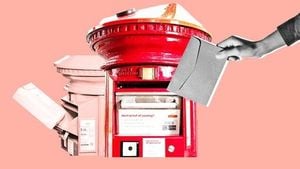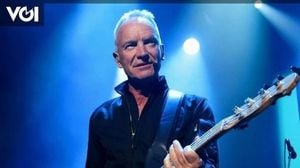In Hong Kong’s West Kowloon courthouse, the long-running national security trial of media tycoon Jimmy Lai Chee-ying has finally reached its conclusion. After nearly two years of legal wrangling, repeated delays, and mounting international scrutiny, closing arguments wrapped up on August 28, 2025. Now, three judges—specially appointed for this landmark case—have retired to deliberate on a verdict that could send the 77-year-old pro-democracy advocate to prison for life.
Lai, founder of the now-defunct Apple Daily newspaper, stands accused of two counts of conspiracy to collude with foreign forces and one count of conspiracy to publish seditious material. Prosecutors allege that between April 2019 and June 2021, he used his newspaper and personal influence to encourage anti-government protests, call for foreign sanctions against Hong Kong and China, and conspire with a network of activists and former colleagues—including Andy Li and paralegal Chan Tsz-wah—to promote hostile actions against the authorities. The charges, rooted in both Beijing’s sweeping 2020 national security law and a colonial-era sedition statute, carry the potential for a life sentence if Lai is found guilty.
The trial, which began in December 2023 and stretched across 156 days in court, is widely regarded as a litmus test for the rule of law and press freedom in Hong Kong. According to Al Jazeera, the case has drawn the attention of world leaders and human rights groups, with many seeing it as a barometer for the city’s rapidly changing political and legal landscape following the 2019 pro-democracy protests and Beijing’s subsequent crackdown.
Lai’s journey from rags to riches is well known in Hong Kong. Fleeing China as a child in the 1950s, he built a business empire that included Apple Daily, a tabloid famous for its blistering criticism of the Chinese Communist Party (CCP) and vocal support for the city’s democracy movement. As Steve Tsang, director of the SOAS China Institute, told Al Jazeera, “From Beijing’s perspective, Jimmy Lai stands out as he is the highest profile and [most] persistent tycoon who used his fortune to support the democracy movement in Hong Kong, and thus challenges the authority of the CCP. To them, this makes Lai a traitor who must be severely punished.”
The prosecution painted Lai as the “mastermind” of a conspiracy to smear Hong Kong and China, citing his lobbying of high-profile US officials—including former national security adviser John Bolton and former Deputy Secretary of Defense Paul Wolfowitz—and his alleged financial support for the advocacy group Stand with Hong Kong. Prosecutors argued that Lai’s actions amounted to a betrayal of national interests, with evidence that he continued to request foreign intervention even after his arrest in August 2020.
Yet Lai and his defense team have fiercely contested the charges. Dressed in a white shirt and beige blazer, looking noticeably thinner than in earlier appearances, Lai smiled and waved at supporters in the public gallery as he was led out of the dock. His lawyers, including Robert Pang SC and Marc Corlett, argued that the trial was an attempt to “denigrate” fundamental rights. “It’s not wrong to support freedom of expression or human rights,” Pang told the court, as reported by The Guardian. “Nor is it wrong not to love a particular administration or even a country.” Corlett further disputed the prosecution’s claim that Lai conspired with others to call for foreign actions, describing one prosecution witness as “a serial liar.” He insisted that even if the court accepted this witness’s testimony, it did not prove Lai had entered into any ongoing agreement to pursue the alleged goals.
Throughout the proceedings, Lai’s health has been a recurring concern. He has spent approximately 1,700 days in solitary confinement—nearly four years and eight months—according to Nikkei Asia. During the final stretch of the trial, his lawyers reported episodes of heart palpitations and light-headedness, prompting judges to adjourn for medical checks and to allow prescribed medications. The Hong Kong government stated that Lai had received “adequate and comprehensive” medical care in custody, and a medical examination found no abnormalities.
The case has not only captivated local residents—dozens lined up outside the courthouse for a seat in the main courtroom—but also sparked widespread international debate. The United States government, along with other Western nations and human rights organizations, has labeled the trial politically motivated and called for Lai’s release. Just two weeks ago, US President Donald Trump declared in a Fox News radio interview, “I’m going to do everything I can to save him.” Trump added, “We’ll see what we can do … we’re going to do everything we can.” Meanwhile, Reporters Without Borders, alongside 72 other human rights and press freedom groups, sent a letter to British Prime Minister Keir Starmer urging him to demand Lai’s “urgent humanitarian release.”
On the other hand, Beijing and Hong Kong officials have rejected accusations of political persecution. The Hong Kong government insists the case is being “handled strictly on the basis of evidence and in accordance with the law,” warning that external commentary could be viewed as an attempt to interfere with the court’s independence. The Chinese Embassy in Washington has echoed these sentiments, condemning what it calls “external forces” for meddling in China’s internal affairs. Authorities argue that the national security law was necessary to restore stability after the 2019 protests, which they say descended into violence and chaos.
Since the law’s introduction on June 30, 2020, Hong Kong has arrested 271 people for national security offenses, formally charged 147, and secured 108 convictions, according to the US consulate in Hong Kong. In 2024, the city enacted a second, locally drafted national security law expanding the scope to include treason, insurrection, sabotage, external interference, sedition, theft of state secrets, and espionage.
One striking feature of Lai’s trial is the absence of a jury, a departure from Hong Kong’s common law tradition. Instead, his fate rests in the hands of three judges, all appointed by the city’s chief executive, who is answerable to Beijing. The verdict could take weeks or even months to arrive, as the judges sift through the voluminous evidence and legal arguments presented by both sides.
For many in Hong Kong and abroad, the outcome will signal the future direction of civil liberties in the city. As resident Chan Chung-yee told the Associated Press, “Jimmy Lai did a lot of good deeds for us Hong Kongers.” Whether Lai’s activism will be deemed a criminal conspiracy or a courageous stand for freedom of expression is now for the judges to decide. The world, it seems, will be watching closely.
